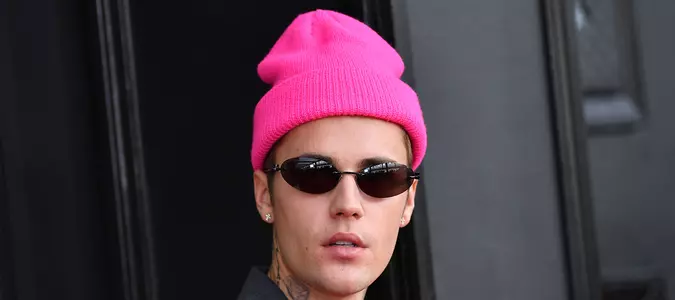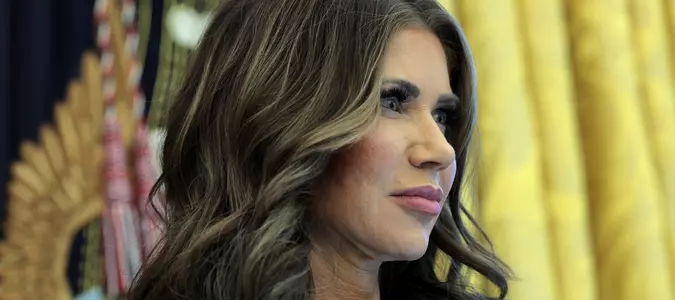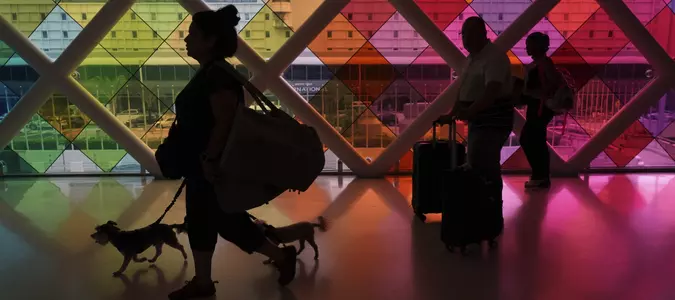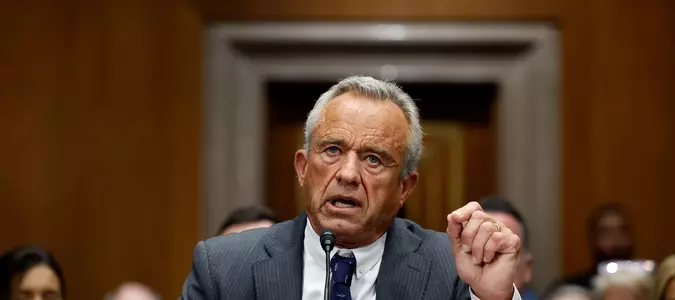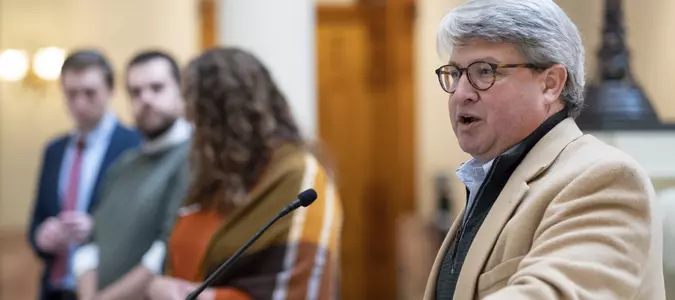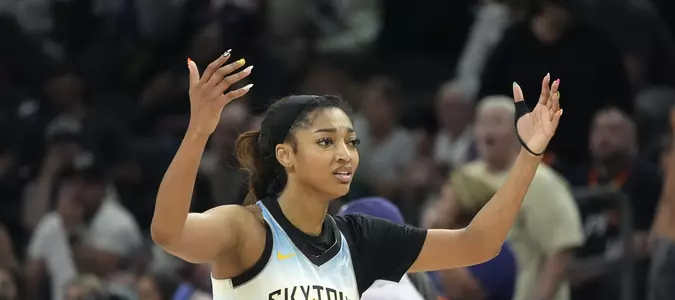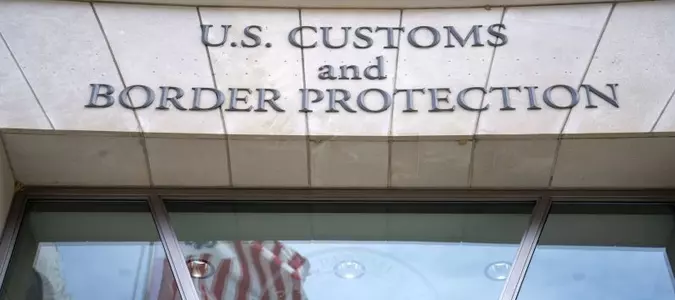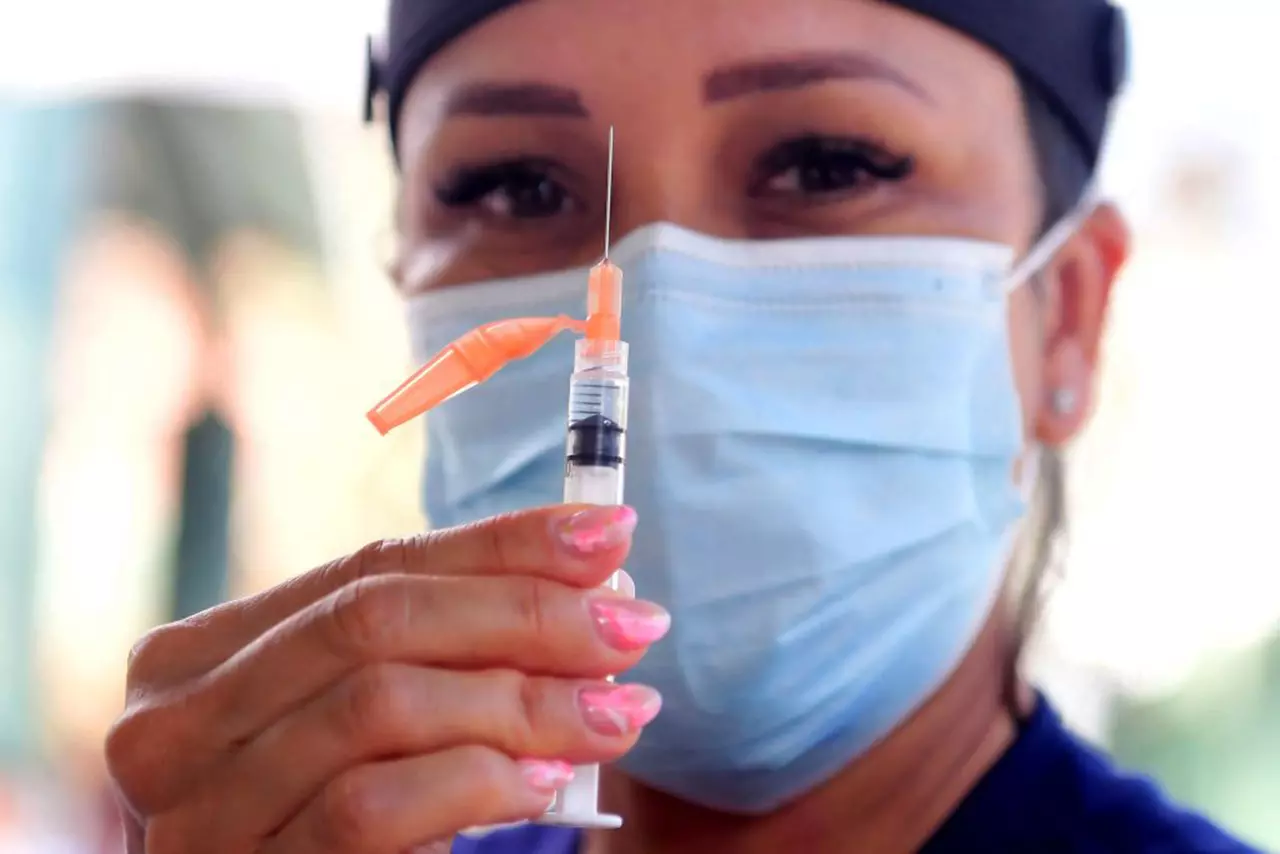

People can't get COVID vaccines as cases surge. Anger is building against Trump
LOS ANGELES — Every year around this time, like clockwork, Marty Lazniarz would plan to get his regular COVID-19 vaccine — essential protection before heading out on a trip. But this year, trying to get his routine shot has been anything but. The 70-year-old retiree from Long Beach said it has been frustratingly difficult to get a COVID vaccine on time this year because of how the Trump ...

Vocational nurse Christina Garibay displays a syringe with Johnson& Johnson's Janssen COVID-19 vaccine at a Skid Row community outreach event where COVID-19 vaccines and testing were offered in Los Angeles, California on August 22, 2021.
Frederic J. Brown/AFP/Getty Images North America/TNS
LOS ANGELES — Every year around this time, like clockwork, Marty Lazniarz would plan to get his regular COVID-19 vaccine — essential protection before heading out on a trip.
But this year, trying to get his routine shot has been anything but.
The 70-year-old retiree from Long Beach said it has been frustratingly difficult to get a COVID vaccine on time this year because of how the Trump administration has effectively postponed delivery of the shots, and made it harder for people to get them.
"The amount of confusion surrounding availability of the new vaccine has been maddening," said Lazniarz, who lost his best friend to COVID a year and a half ago.
He's far from the only one who is upset. Doctors and pharmacists report they are being inundated with questions about the uncertainty surrounding the long-available vaccines this fall.
Fueling that is the recent announcement from the Department of Health and Human Services, led by the vaccine skeptic Robert F. Kennedy Jr., that adults under 65 will have to consult with a healthcare professional or, in some states, attest that they have an underlying medical condition before they can get the updated version of the COVID vaccination this fall.
Parents this year are also required to talk to a healthcare professional before their children can be vaccinated.
Kennedy previously said the guidance would "keep vaccines available to people who want them, especially the vulnerable," while demanding additional research. But the additional hurdles are such that some healthier, younger people are wondering whether they should just say they have an underlying medical condition, even if they don't, to get the vaccine.
As of Thursday afternoon, neither Walgreens nor CVS were allowing adults in California under age 65 to book COVID-19 vaccine appointments unless they attested to having an underlying medical condition — such as asthma, diabetes or high blood pressure. CVS said those people could contact their healthcare provider for next steps.
The role of pharmacists — and whether they're considered "healthcare professionals" who can authorize administration of the vaccine — also remains murky.
Amid this new federal regulatory landscape, there are 11 states in which residents, depending on their age, can only get a COVID-19 vaccine at a CVS pharmacy if they get a prescription for it: Arizona, Florida, Georgia, Louisiana, Maine, North Carolina, New Mexico, New York, Utah, Virginia and West Virginia, as well as the District of Columbia.
Colorado, Massachusetts and Pennsylvania took steps this week so that people wouldn't have to get prescriptions to get their COVID-19 vaccine at a pharmacy.
These hurdles, doctors and pharmacists say, are all but guaranteed to discourage some people from getting the vaccine this fall — even as a late summer COVID wave is sweeping across California and most other states.
The confusion has spread nationwide. One doctor in Oregon, hoping to get her COVID vaccination Thursday ahead of a trip, said on social media that her CVS pharmacist told her that she was being denied the vaccine, per regulations.
Sen. Bill Cassidy, R-La., a doctor himself, said Thursday he's heard from a physician friend that pharmacists are requiring a prescription — even for seniors age 65 and over — to get a COVID-19 vaccine, "creating a huge headache." And he spoke of a stage 4 lung cancer patient from Georgia who has been unable to quickly get a COVID-19 vaccine.
"I would say, effectively, we're denying people vaccines," Cassidy told Kennedy during a Senate hearing.
"Well, you're wrong," Kennedy replied.
Kennedy has said he wants more studies on the COVID-19 shots, which he has long claimed are harmful — even deadly. Other health experts, however, have said putting restrictions on vaccine eligibility before that additional testing is done is unnecessary, given the extensive study before the vaccines were first distributed, and their track record of safety and efficacy since.
In California, some people have described scrambling in recent weeks to get the previously available version of the vaccine, being unable to, and then getting COVID.
"It's a mess," said Dr. Eric Ball, a pediatrician in Orange County. "Anything that makes it harder to get a vaccine because of bureaucracy, because of unnecessary doctor's appointments ... is going to lead to fewer people getting vaccinated, which, in the end, is going to lead to more people getting severely sick, which is going to lead to more people hospitalized and potentially more people dying."
The actions taken at the federal level have effectively resulted in "a slowdown of access" to the COVID vaccine, said Richard Dang, a pharmacist and associate professor at USC.
Dang, who is also past president of the California Pharmacists Assn., said decisions regarding this fall's COVID-19 vaccines by the Food and Drug Administration and the Centers for Disease Control and Prevention — both of which fall under the HHS umbrella — should have been made months ago.
Not only has the FDA acted to "approve" the COVID-19 vaccine just for select groups, but the CDC's Advisory Committee on Immunization Practices hasn't met to issue its recommendations, something many healthcare providers typically wait to review before administering vaccines. The committee — now filled with members handpicked by Kennedy — is scheduled to meet in a few weeks.
"That, frankly, is too late in the season. These decisions should have been made months ago, and HHS seems to be delaying that to as late as possible," Dang said.
In an op-ed in the Wall Street Journal, recently ousted CDC director Susan Monarez said she was fired for resisting Kennedy's pressure "to compromise science." She said she was asked "to preapprove the recommendations of a vaccine advisory panel newly filled with people who have publicly expressed antivaccine rhetoric."
"Those seeking to undermine vaccines use a familiar playbook: discredit research, weaken advisory committees, and use manipulated outcomes to unravel protections that generations of families have relied on to keep deadly diseases at bay," Monarez wrote. "If we stay silent, preventable diseases will return — as we saw with the largest measles outbreak in more than 30 years, which tragically killed two children."
Dr. Jasjit Singh, a pediatric infectious diseases physician at Children's Hospital of Orange County, said she has heard from parents worried about being able to get the vaccine, especially those who have a child or older person in their household at high risk of severe illness should they get COVID.
She said she has also heard about pregnant women who are worried they might not be able to get vaccinated, either.
The CDC earlier this year rescinded its recommendation that all pregnant women be vaccinated for COVID, instead saying they offer "no guidance" on immunizing healthy pregnant women. In response, the American College of Obstetricians and Gynecologists recommended that pregnant people continue to get the vaccine.
"Vaccinating during pregnancy is incredibly helpful, because moms can make the antibodies and transfer those antibodies across the placenta," Singh said. It also protects the mom-to-be, and results in protective antibodies being passed along in breast milk. "Importantly, [the vaccine] protects those babies under 6 months of age, who are at particularly high risk."
COVID hospitalization rates among the youngest kids are quite high. Infants younger than 6 months have the same rate of hospitalization as seniors age 65 to 74.
"It is definitely still a severe disease in our youngest kids ... whose airways are small and whose immune systems are less mature," Singh said.
"And then in our kids with underlying risk factors, of course, cardiopulmonary disease, kids with compromised immune systems, neurologic problems — COVID is still a severe disease. And with the kind of summer wave that we're experiencing right now, we're seeing an uptick in our hospitalized kids," Singh said.
Many doctors lamented how once-clear vaccine guidelines have become muddled and confusing.
"Any time we have conflicting guidelines, guidelines that aren't very clear, I think it makes it more difficult for everyone to access vaccines. And that's a real problem," Singh said.
Ball, the Orange County pediatrician, said he's going to start focusing on vaccine recommendations from medical societies such as the American Academy of Pediatrics. The group has issued its own immunization schedule for children, and noted that it does not endorse the CDC's revised child immunization schedule.
The group recommends high-risk children get the vaccine, as well as all children age 6 months to 23 months. Those age 2 through 18 who are healthy should be offered the vaccine if their parent wants them to get it, the group recommends.
"I think the federal health agencies have been essentially corrupted by politics, and I really can't trust anything that's coming out of Health and Human Services right now, so I really need to focus on trusted resources," Ball said.
Kennedy has accused the pediatricians' group as being "gravely conflicted" and dependent on money from pharmaceutical companies.
"As we enter respiratory virus season, any barrier to COVID-19 vaccination creates a dangerous vulnerability for children and their families," Dr. Susan Kressly, president of the American Academy of Pediatrics, said in a statement. "Respiratory illnesses can be especially risky for infants and toddlers, whose airways and lungs are small and still developing."
Ball said he plans on offering vaccinations based off of the AAP schedule, including any of his patients who want a COVID vaccine.
"I have two children. They're not particularly at high risk, but my wife is immunocompromised, and we will all plan on getting COVID vaccines this fall," Ball said.
Ball said the COVID-19 vaccine has been "the most studied vaccine in the history of humanity."
"We have so many studies about it, and we know who are the higher-risk individuals. We know that pregnant women are at higher risk for COVID. We know that babies are at higher risk for getting very sick with COVID. So I have to rely on experts, people who study this stuff for a living, people who are doctors and, frankly, not politicians," Ball said.
Ball said he was concerned about actions taken in Florida, where officials are moving to end vaccine requirements as a condition of entry into schools.
"It's catastrophic, it will lead to outbreaks of disease," Ball said. "I feel horrible for anyone who's in that state, particularly if they have family members who are immunocompromised, who can't get vaccinated. Can you imagine the horror or terror of being a parent who has a child with cancer, child with an autoimmune disease, kids who cannot get vaccinated — who are being protected by all the other [vaccinated] kids ... and now they're going to lose that protection?"
As for retiree Lazniarz, he said he was eventually able to get a vaccine appointment, but lamented at how difficult it was — and said he is worried that others will be discouraged from getting the shot this year.
"What's been coming out of Washington has been — putting it mildly — very confusing," he said. "I can't imagine what people who don't regularly follow this, but do want to maintain protection from serious consequences of COVID, are doing."
